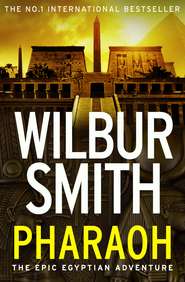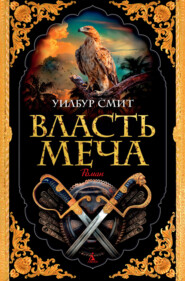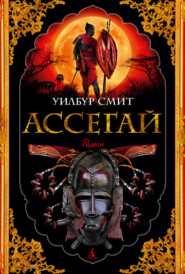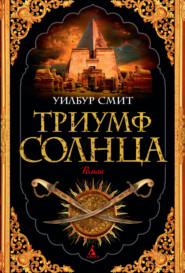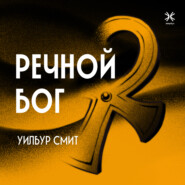По всем вопросам обращайтесь на: info@litportal.ru
(©) 2003-2024.
✖
The Tiger’s Prey
Автор
Год написания книги
2019
Настройки чтения
Размер шрифта
Высота строк
Поля
He hugged her. ‘Goodbye, Mother.’
‘Where will you go?’ She had to shout in his ear to make herself heard over the rain.
He hadn’t thought about it until that moment – but the moment he did, he knew the answer.
‘The only family I have left in the world is my uncle Guy, in Bombay. I will go to the East India Company in London, and ask them for a position, and passage in one of their ships.’ He glanced back at the great house, so pregnant with memories. ‘Perhaps I will make my fortune, and return one day to reclaim High Weald.’
She twisted the drawstring of the little velvet bag in her fingers, trying to hide the pain in her heart at the thought of her only son going so far away.
‘It is a good plan. But be careful with your uncle Guy. Strange to say, when you were two years old you were the largest shareholder in the East India Company outside its Court of Directors. Your grandfather Hal had amassed more than twenty thousand shares, and when William died so soon after his father, they all came to you. They were to be held in trust, but Guy advised us to sell them. I followed his advice, but since then I have always wondered if he dealt honestly with us. If we had kept those shares in a trust, Walter could never have touched them. Once we converted them to cash …’
She sighed. Whatever William’s faults, he had left her one of the richest widows in England. In the fifteen years since, her second husband had turned that inheritance into nothing but debt and regret. How could she ask Francis to stay? There was nothing for him here. Sir Walter had seen to that.
‘Take this.’ She handed him the velvet bag. Rain had soaked the fabric, but he felt something hard and heavy inside. He opened it.
After the poverty of the past months, it was like a vision of heaven. By the light of the stable lamp, he saw that it was a large golden medal depicting a lion with a shaggy mane. It was holding in its paws the globe of the world, with diamond stars shining in the blue enamel heaven above.
‘What is this?’
‘The order of St George and the Holy Grail. The Courtneys have worn it for more generations than I can count. Now it belongs to you.’
‘But …’ He struggled to take it in, like a starving man confronted with a banquet. ‘This must be worth a fortune. The diamonds alone … If we sold it, we could keep High Weald.’
‘No.’ She held his gaze. ‘This is the honour of the Courtneys. Wherever you go, whatever you do, never lose it.’
Shouts sounded nearer, around the side of the house. She folded his hands around the bag and kissed him.
‘Go. The man to see in London is Sir Nicholas Childs. He was a friend of your grandfather’s, and he is still a powerful man in the East India Company. If there is any man alive who can help you, it is he.’
Francis had been to London many times as a boy, but always with his parents, travelling in a well-sprung carriage with a coachman to clear their way with a crack of his whip, and footmen to fetch and carry at every stop. Now, the journey took almost a week, long slow days struggling against boggy roads and relentless autumn weather. He slept in ditches, tethering Hyperion out of sight behind hedgerows, terrified lest anyone should come across him and find the red velvet bag under his shirt. One morning, near Salisbury, he was woken by a gang of Sheriff’s men, who called him a vagabond and a horse-stealer, and chased him across several fields until he finally escaped. At Richmond, he spent his last few coins on a bag of oats for Hyperion, and a mug of small beer for himself. By the time they reached London, the horse was almost lame and Francis was caked with mud.
The city terrified the horse: the crowds and noise, the carts and carriages rattling over the stones. He had to dismount and lead Hyperion by his bridle, whispering comfort in his ears. In the busy streets, most people ignored him, but he saw the way others looked at him, a shabby boy with such a fine horse. His cheeks flushed as he read the suspicion on their faces; he had never felt so alone.
At last he found a livery stable. The ostler gave Francis one look and declared he must pay in advance. The fee would be five shillings.
Francis patted his pockets. ‘I have nothing.’
‘Then I’ve got nothing for you.’
‘Please.’ Night was falling, and the thought of trudging around this hostile city any longer was too much to bear. ‘I can find the money tomorrow.’
A sly look came over the ostler’s face as he took the measure of Francis’ desperation. ‘You could sell the horse.’
Francis started in horror. He opened his mouth to reject the offer, but the words wouldn’t come. What had he expected? If he were going to make a new life in India, he would never be able to take Hyperion with him.
Tears pricked his eyes, but he refused to cry.
‘How much?’
‘Not for myself. I’ll find a buyer. He can stay here, until I do.’
Francis wrapped his arms around the horse’s neck, and pressed his face against its mane. Hyperion whinnied, glad to have the familiar smells and sounds of the stable yard around him again.
‘Can I at least have a bed for the night?’
The ostler looked him up and down. ‘You can sleep in the stables.’
Francis slept badly and woke early. He washed himself as well as he could in water from the trough, and brushed the mud off his clothes with a horse brush. It didn’t help much. Walking down Cheapside, he caught his reflection in the shop windows and grimaced. His dark hair stuck out at all angles, his eyes were rimmed with purple bags like bruises, and he had a week’s adolescent stubble darkening his cheeks. His clothes were tattered, and though the horse brush had taken off the worst of the muck, the mud had left deep stains all over the fabric. His big toe poked through a hole in his right shoe.
He was going to call on one of the richest men in London. Sir Nicholas Childs was the man who had built the East India Company from a small company of merchant adventurers into a behemoth that governed half the world’s trade. Francis had known the name for as long as he could remember – though if ever he or his stepfather mentioned it, his mother always changed the subject.
It seemed half of London knew the house on Leadenhall Street, and he obtained directions to it readily. At ground level, there was nothing very remarkable about it. Wooden shutters and a pair of heavy, studded doors hid the interior from casual passers-by; the only ornament was a pair of ornately carved oriental columns flanking the doorway, and a liveried porter. But if you raised your eyes, you would begin to notice details that suggested something grander. On the first floor, a wooden balcony fronted the street, with glass galleries behind; above it, a royal crest stood large and proud on the second-storey woodwork. Above that, so far up you had to crane your neck, the cornice had been painted with a gaudy mural, ships under full sail on a bright wave-flecked sea, flanked by dolphins and crowned with the statue of an honest Elizabethan sailor, scanning the spires and chimney pots of London.
Anyone who didn’t know might have mistaken it for a chandler’s yard that had misplaced itself in the city. In fact, it was the headquarters of some of the most powerful men on earth.
Francis hesitated, screwing up his courage. He approached the porter.
‘Please inform Sir Nicholas Childs that Francis Courtney wishes to see him on urgent business.’ Anxiety made the words come out higher than usual. He wished he didn’t sound so childish.
The porter stared down his nose at him. ‘Sir Nicholas Childs is busy today. And Sir Francis Courtney died in the reign of good King Charles.’
‘I am his great-grandson. And please, I must speak with Sir Nicholas.’ He tried to push past, through the great studded door. A stout arm blocked his way and pushed him back into the street.
‘Sir Nicholas is not receiving visitors.’ The porter emphasised every syllable with a jab of his finger on Francis’ chest. ‘And if you keep obstructing this door, I will have you charged with vagrancy.’
Francis retreated across the street, into the shadow of a coffee house. Through the windows, he could see men sat around tables in earnest debate, studying newspapers and sipping steaming cups of coffee. Nothing but glass between them, but it felt like another world.
A wave of powerless rage rushed through him, shaking him to his bones. There had been times, in the past few years, where he had felt as if he had nothing. He had never realized how much he had. Now he saw, with the bitter clarity of despair, how hopeless he had become. Nothing was possible without money. Lack of it had killed his stepfather, parted him from his mother, and cost him his home, his horse – everything except the clothes on his back and the emblem around his neck.
He looked at the men inside the coffee house again and imagined himself among them, regaling his fellow merchants with tales of investments recouped, profits taken and vast fortunes made in the Indies. Whatever was required to join their company, he would do it. He would sail to the far side of the world, suffer any hardship and risk any hazard. Even kill a man or many men, if he had to do that to succeed, though the thought made him tremble. He swore that he would win his fortune, or die in the attempt.
He settled down to wait. Every time the door to the coffee shop opened, the smells from inside made his mouth water. As the morning wore on, people began to walk past carrying steaming meat pies and hot pastries. He felt faint. The bag around his neck weighed heavier and heavier: so valuable, but he could not think of selling it. He thought about returning to the inn, to see if the ostler had sold Hyperion, but he didn’t want to miss a possible meeting with Sir Nicholas.
He had no idea how he would recognize him. His mother had said Childs was a friend of his grandfather Hal, so he must be of a great age by now. He watched the comings and goings at the house on Leadenhall Street. Older men in immaculate wigs, younger men stooped under the weight of bulging satchels of books and documents. Each time the door opened, the porter stepped out and glared at him, but he didn’t cross the street. Once, Francis thought he saw a man studying him from the shadows of the first floor balcony, but he retreated inside before Francis could get a good look at him.
The October day wore on. Shadows lengthened; the coffee house emptied. The church bells started chiming for evening prayer. Francis began to wonder where he would go that evening, and where he could eat. He had forgotten his noonday dreams of fortune and trade. All he wanted was a meal. He touched the velvet bag that bulged slightly under his shirt. He’d seen a pawnbroker’s near the inn: surely he could get a good price there. Only for a few days, until he had the money from Hyperion. The thought made him feel ashamed of his weakness.
Lost in thought, Francis didn’t see the porter hurrying towards him until he was halfway across the street. He was carrying a hotcake wrapped in a napkin.
‘I’ve been watching you all day. You haven’t eaten a thing.’
Francis almost snatched the cake out of his hands. He buried his face in it, too hungry to taste the sweet flavours of sugar and almonds filling his mouth.
He was so busy eating, he didn’t notice the two men who had accompanied the porter across the street. The first he knew was stout hands seizing his arms, another hand over his mouth and the porter holding a stick across his throat. He choked. The cake fell half-eaten to the ground and was trampled under hobnailed boots.
He struggled, but he had no chance. The porter and his men bundled him across the road and inside the building; he couldn’t even cry out. If any of the passers-by noticed, they knew well enough to keep on walking.
The house was much larger inside than it had seemed from the street. The men dragged Francis down a long corridor, thick with the smells of cloves and pepper, then up many stairs. Francis heard laughter and conversations, but all the doors were closed and no one looked out.






